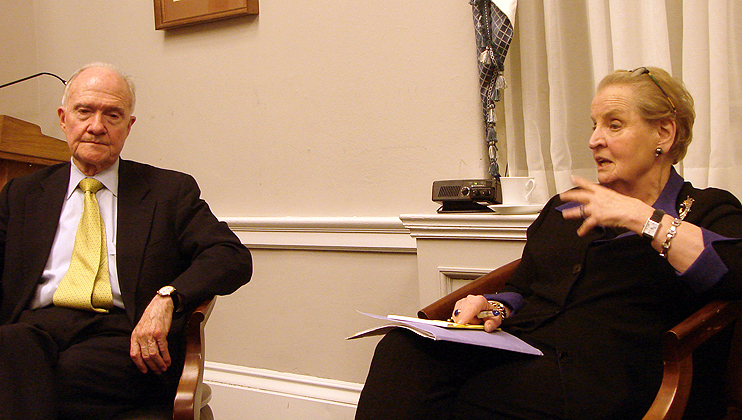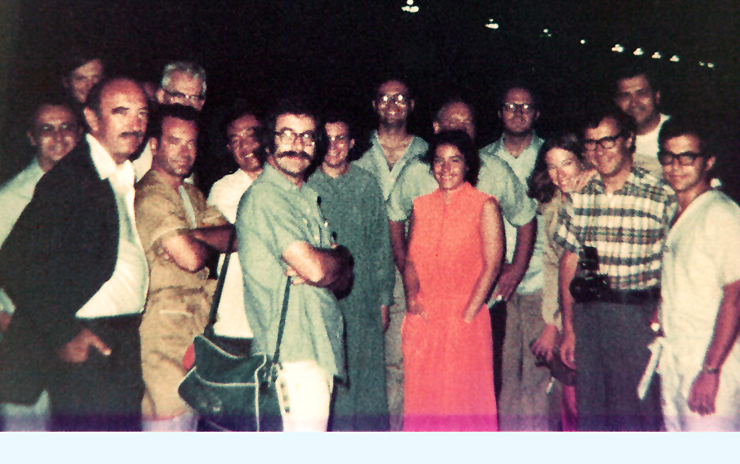The Chinese media is giving greater attention to HIV/AIDS, yet it often ignores the effects of HIV/AIDS-related stigma and discrimination. A National Committee exchange program, conducted in the spring and summer of 2006, was designed to highlight the roles that journalists can play in combating stigma and discrimination, call attention to society’s attitudes toward marginalized groups, encourage community involvement in finding solutions and stimulate policy debates on a national response.
During the opening months of the 113th session of Congress, the National Committee again organized a briefing for freshman Members of Congress on critical issues in the U.S.-China relationship. Headlined by Governor Jon Huntsman, former Ambassador to China (and a former National Committee Director), this session was the fourth of its kind in as many election cycles. Governor Huntsman drew on his vast experience with China to comment on the present-day bilateral relationship in an off-the-record session on Capitol Hill.
This two-way exchange project introduced and facilitated community planning for HIV/AIDS education, prevention, and treatment through training workshops, observation of working models, and dialogue between American and Chinese government officials, public health professionals, and staff of community-based organizations. The main project focuses were the community planning models used by the U.S. Centers for Disease Control and Prevention in particular, and the role of the community in HIV/AIDS prevention and treatment in general.
While a few staff members had joined their bosses on early trips to China made by the Senate and House leadership, it was the National Committee, in the summer of 1976, that sent the first group composed solely of staff members to China. This presaged the MEACA (Mutual Education and Cultural Act) program the Committee currently runs for both D.C and state/district-based staff members.

